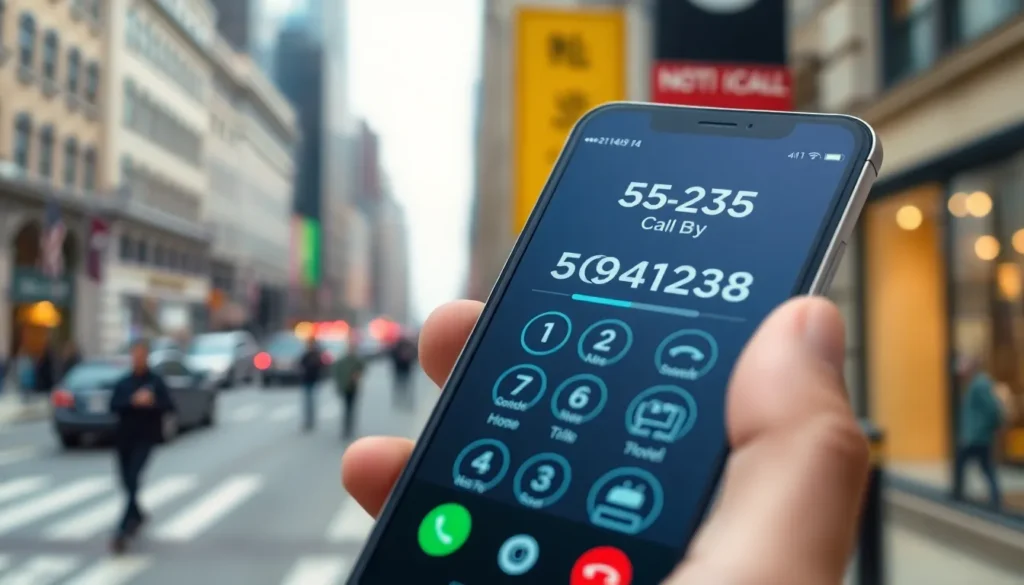Everyone’s had one of those days where getting out of bed feels like climbing Mount Everest. Enter motivation speeches, the secret sauce that can turn a sluggish morning into a powerhouse of inspiration. These talks aren’t just a collection of feel-good phrases; they’re like a double shot of espresso for the soul, ready to kickstart ambition and drive.
Table of Contents
ToggleOverview of Motivation Speeches
Motivational speeches serve as a catalyst for self-improvement and personal growth. These speeches aim to energize listeners, encouraging them to take action towards their goals. Examples of renowned speakers include Tony Robbins, Les Brown, and Brené Brown, each delivering profound insights that resonate with diverse audiences.
These presentations often incorporate personal anecdotes, relatable experiences, and actionable strategies. By doing so, speakers connect deeply with their audience, facilitating a shared emotional journey. Statistics indicate that approximately 70% of individuals report feeling inspired after attending a motivational event.
Delivery techniques play a crucial role in the effectiveness of motivation speeches. Engaging storytelling, powerful visuals, and dynamic body language enhance the speaker’s message. Moreover, interactive elements such as audience participation bolster relatability and create a memorable experience.
Frequency of motivational speeches has increased in various settings, including corporate environments, academic institutions, and personal development workshops. Over 80% of companies utilize motivational speakers to boost employee morale and productivity. These efforts underscore a commitment to fostering a positive work culture and enhancing overall employee satisfaction.
Inspiring content focuses on universal themes, such as resilience, overcoming fear, and embracing change. By addressing common struggles, motivational speakers empower individuals to push beyond limitations, fostering a mindset geared towards success. Ultimately, motivation speeches continue to inspire and energize audiences, making a significant impact on personal and professional development.
Impact on Audience

Motivational speeches significantly shape audience mindset and behavior. These talks deliver compelling insights that drive change and foster growth.
Psychological Benefits
Psychological advantages stem from motivational speeches. Exposure to inspiring messages leads to increased self-esteem and heightened motivation. Listeners, inspired by transformative narratives, often experience a boost in their cognitive functioning. Studies reveal that approximately 70% of attendees report feeling more confident post-speech. Such positive reinforcement encourages individuals to tackle challenges more effectively. Additionally, motivational speeches create a sense of community among listeners, enhancing feelings of support and reducing feelings of isolation.
Emotional Engagement
Emotional connection plays a crucial role in motivational speeches. Engaging storytelling captivates audiences, making them feel relatable and understood. Dynamic speakers create moments of vulnerability that resonate deeply with listeners. A significant percentage of attendees express feeling emotionally charged after such events. Personal anecdotes, delivered passionately, foster a bond that encourages reflection and action. By addressing universal themes, speakers tap into shared experiences, promoting deeper engagement and lasting impact. Ultimately, this emotional resonance drives individuals to pursue their goals with renewed vigor.
Famous Motivation Speeches
Motivational speeches resonate due to their impactful messages and influential speakers. They create lasting impressions, inspiring listeners to achieve their potential.
Iconic Speakers
Tony Robbins stands out with his high-energy presentations and transformational strategies. Les Brown captivates audiences with his compelling storytelling and personal resilience. Brené Brown connects deeply through her research on vulnerability and courage, empowering listeners to embrace their authentic selves. Other notable figures include Zig Ziglar, known for his infectious optimism, and Barack Obama, whose eloquence inspires hope and determination. These speakers utilize their unique styles to deliver motivating messages that encourage self-improvement.
Memorable Quotes
“Your limitation—it’s only your imagination.” This quote from Tony Robbins demonstrates the power of mindset. “Shoot for the moon. Even if you miss, you’ll land among the stars,” famously spoken by Les Brown, emphasizes ambitious thinking. “You are imperfect, you are wired for struggle, but you are also worthy of love and belonging,” captures Brené Brown’s core philosophy. “The future belongs to those who believe in the beauty of their dreams,” from Eleanor Roosevelt, encourages the pursuit of aspirations. These quotes encapsulate the essence of motivation, offering inspiration that lingers long after the speech ends.
Techniques Used in Motivation Speeches
Motivational speeches employ various techniques to effectively engage and inspire audiences. Key methods include storytelling and calls to action, each playing a vital role in the impact of these talks.
Storytelling
Captivating storytelling serves as a core technique in motivational speeches. Speakers often share personal experiences and relatable narratives that resonate with listeners. Through engaging tales, they illustrate challenges and triumphs, allowing audiences to connect emotionally. Compelling stories evoke empathy and understanding, making the message more memorable. For instance, renowned speakers like Les Brown often recount his life struggles, transforming obstacles into opportunities. This method not only builds rapport but also encourages individuals to reflect on their journeys. Effective storytelling reinforces the speech’s message and motivates listeners to take action.
Call to Action
Calls to action drive audience engagement and focus on specific behaviors or changes. These directives encourage listeners to take immediate steps towards their goals or aspirations. Speakers clearly articulate their expectations, helping individuals visualize potential outcomes. Motivators like Tony Robbins often conclude speeches with powerful calls to action, urging audiences to embody change immediately. Utilizing strong, actionable language fosters a sense of urgency and accountability. Attendees frequently leave feeling empowered, ready to implement new strategies. Ultimately, compelling calls to action are essential for translating inspiration into tangible results.
Motivational speeches have a profound ability to ignite passion and drive in individuals. They not only inspire action but also foster a sense of community among listeners. By utilizing engaging storytelling and dynamic delivery, these speeches resonate deeply, encouraging personal growth and self-improvement.
The impact of renowned speakers like Tony Robbins and Brené Brown illustrates the power of words in transforming mindsets. As more organizations recognize the value of motivation in the workplace, the demand for these speeches continues to rise. Ultimately, motivational speeches serve as a vital tool for anyone looking to break through barriers and pursue their aspirations with renewed energy.










